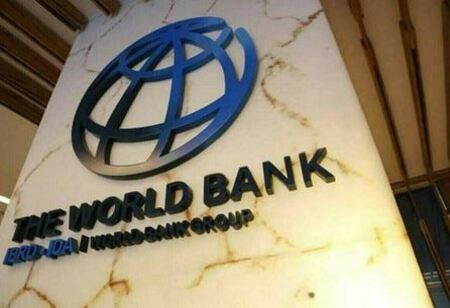
World Bank Grants South Africa $1.5 Billion for Infrastructure


The National Treasury of South Africa announced that the World Bank has approved a loan of 1.5 billion to enhance transportation infrastructure and assist in the country's transition to a low-carbon economy.
In South Africa, deteriorating rail networks, overcrowded ports, and frequent power outages have impeded essential sectors such as mining and automobile manufacturing, which have contributed to sluggish economic growth in Africa's most developed economy over the past ten years.
President Cyril Ramaphosa and his coalition government have committed to addressing issues of corruption and years of ineffective management, as well as implementing reforms aimed at revitalizing the economy and reducing the exceptionally high unemployment rate.
Although specific details were not provided, the South African government indicated that it anticipates the World Bank loan will facilitate inclusive economic growth and job creation by helping to eliminate critical infrastructure bottlenecks, particularly in the energy and freight transport sectors.
Moreover, since the financing comes with more favorable terms than typical loans, including a three-year grace period, it is expected to alleviate rising debt-service costs.
The budget for South Africa from 2025 to 2026 has set aside over R1 trillion over the next three years for essential infrastructure in transportation, energy, water, and sanitation, while also enhancing access to fundamental services.
Also Read: 5 Management Habits of CFOs
However, the Finance Ministry revised its forecast for real gross domestic product growth down to 1.4 percent in 2025, from an earlier projection of 1.9 percent made in March, due to a deteriorating global economic outlook, ongoing logistics challenges, and rising borrowing costs.
Finance Minister Enoch Godongwana stated that government debt is expected to stabilize at 77.4 percent of GDP by 2025/26.
Earlier this year, the disbanding of USAID by the Trump administration resulted in a loss of approximately USD 436 million in annual funding for HIV treatment and prevention in South Africa, jeopardizing the program and thousands of healthcare jobs.
Also Read: An Ecological LED through a Low-Carbon Route
Godongwana indicated that the country lacks the resources to address the more than USD 430 million deficit caused by the cuts in foreign aid made by the Trump administration, which have endangered the extensive support network for one of the largest populations of HIV-positive individuals worldwide.

